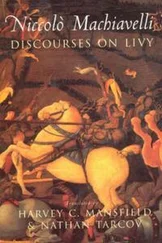3. Our forefathers, and those who were reckoned wise, were accustomed to say that it was necessary to hold Pistoia by factions and Pisa by fortresses; and with this idea they fostered quarrels in some of their tributary towns so as to keep possession of them the more easily. This may have been well enough in those times when Italy was in a way balanced, but I do not believe that it can be accepted as a precept for to–day, because I do not believe that factions can ever be of use; rather it is certain that when the enemy comes upon you in divided cities you are quickly lost, because the weakest party will always assist the outside forces and the other will not be able to resist. The Venetians, moved, as I believe, by the above reasons, fostered the Guelph and Ghibelline factions in their tributary cities; and although they never allowed them to come to bloodshed, yet they nursed these disputes amongst them, so that the citizens, distracted by their differences, should not unite against them. Which, as we saw, did not afterwards turn out as expected, because, after the rout at Vaila, one party at once took courage and seized the state. Such methods argue, therefore, weakness in the prince, because these factions will never be permitted in a vigorous principality; such methods for enabling one the more easily to manage subjects are only useful in times of peace, but if war comes this policy proves fallacious.
4. Without doubt princes become great when they overcome the difficulties and obstacles by which they are confronted, and therefore fortune, especially when she desires to make a new prince great, who has a greater necessity to earn renown than an hereditary one, causes enemies to arise and form designs against him, in order that he may have the opportunity of overcoming them, and by them to mount higher, as by a ladder which his enemies have raised. For this reason many consider that a wise prince, when he has the opportunity, ought with craft to foster some animosity against himself, so that, having crushed it, his renown may rise higher.
5. Princes, especially new ones, have found more fidelity and assistance in those men who in the beginning of their rule were distrusted than among those who in the beginning were trusted. Pandolfo Petrucci, Prince of Siena, ruled his state more by those who had been distrusted than by others. But on this question one cannot speak generally, for it varies so much with the individual; I will only say this, that those men who at the commencement of a princedom have been hostile, if they are of a description to need assistance to support themselves, can always be gained over with the greatest ease, and they will be tightly held to serve the prince with fidelity, inasmuch as they know it to be very necessary for them to cancel by deeds the bad impression which he had formed of them; and thus the prince always extracts more profit from them than from those who, serving him in too much security, may neglect his affairs. And since the matter demands it, I must not fail to warn a prince, who by means of secret favours has acquired a new state, that he must well consider the reasons which induced those to favour him who did so; and if it be not a natural affection towards him, but only discontent with their government, then he will only keep them friendly with great trouble and difficulty, for it will be impossible to satisfy them. And weighing well the reasons for this in those examples which can be taken from ancient and modern affairs, we shall find that it is easier for the prince to make friends of those men who were contented under the former government, and are therefore his enemies, than of those who, being discontented with it, were favourable to him and encouraged him to seize it.
6. It has been a custom with princes, in order to hold their states more securely, to build fortresses that may serve as a bridle and bit to those who might design to work against them, and as a place of refuge from a first attack. I praise this system because it has been made use of formerly. Notwithstanding that, Messer Nicolo Vitelli in our times has been seen to demolish two fortresses in Citta di Castello so that he might keep that state; Guido Ubaldo, Duke of Urbino, on returning to his dominion, whence he had been driven by Cesare Borgia, razed to the foundations all the fortresses in that province, and considered that without them it would be more difficult to lose it; the Bentivogli returning to Bologna came to a similar decision. Fortresses, therefore, are useful or not according to circumstances; if they do you good in one way they injure you in another. And this question can be reasoned thus: the prince who has more to fear from the people than from foreigners ought to build fortresses, but he who has more to fear from foreigners than from the people ought to leave them alone. The castle of Milan, built by Francesco Sforza, has made, and will make, more trouble for the house of Sforza than any other disorder in the state. For this reason the best possible fortress is—not to be hated by the people, because, although you may hold the fortresses, yet they will not save you if the people hate you, for there will never be wanting foreigners to assist a people who have taken arms against you. It has not been seen in our times that such fortresses have been of use to any prince, unless to the Countess of Forli, [43] Catherine Sforza, a daughter of Galeazzo Sforza and Lucrezia Landriani, born 1463, died 1509. It was to the Countess of Forli that Machiavelli was sent as envy on 1499. A letter from Fortunati to the countess announces the appointment: "I have been with the signori," wrote Fortunati, "to learn whom they would send and when. They tell me that Nicolo Machiavelli, a learned young Florentine noble, secretary to my Lords of the Ten, is to leave with me at once." Cf. "Catherine Sforza," by Count Pasolini, translated by P. Sylvester, 1898.
when the Count Girolamo, her consort, was killed; for by that means she was able to withstand the popular attack and wait for assistance from Milan, and thus recover her state; and the posture of affairs was such at that time that the foreigners could not assist the people. But fortresses were of little value to her afterwards when Cesare Borgia attacked her, and when the people, her enemy, were allied with foreigners. Therefore, it would have been safer for her, both then and before, not to have been hated by the people than to have had the fortresses. All these things considered then, I shall praise him who builds fortresses as well as him who does not, and I shall blame whoever, trusting in them, cares little about being hated by the people.
Chapter XXI
How a Prince Should Conduct Himself So as to Gain Renown
Nothing makes a prince so much esteemed as great enterprises and setting a fine example. We have in our time Ferdinand of Aragon, the present King of Spain. He can almost be called a new prince, because he has risen, by fame and glory, from being an insignificant king to be the foremost king in Christendom; and if you will consider his deeds you will find them all great and some of them extraordinary. In the beginning of his reign he attacked Granada, and this enterprise was the foundation of his dominions. He did this quietly at first and without any fear of hindrance, for he held the minds of the barons of Castile occupied in thinking of the war and not anticipating any innovations; thus they did not perceive that by these means he was acquiring power and authority over them. He was able with the money of the Church and of the people to sustain his armies, and by that long war to lay the foundation for the military skill which has since distinguished him. Further, always using religion as a plea, so as to undertake greater schemes, he devoted himself with pious cruelty to driving out and clearing his kingdom of the Moors; nor could there be a more admirable example, nor one more rare. Under this same cloak he assailed Africa, he came down on Italy, he has finally attacked France; and thus his achievements and designs have always been great, and have kept the minds of his people in suspense and admiration and occupied with the issue of them. And his actions have arisen in such a way, one out of the other, that men have never been given time to work steadily against him.
Читать дальше












